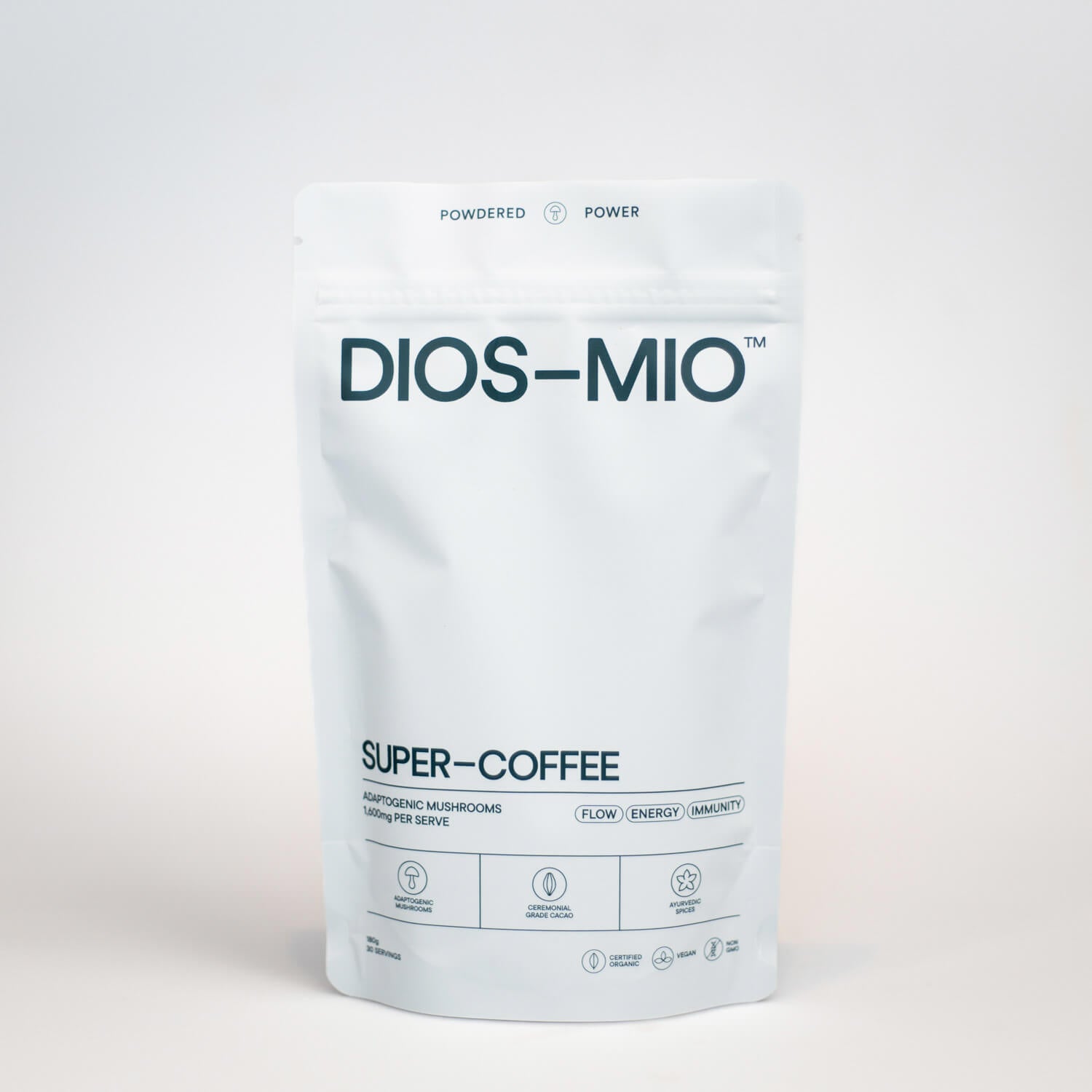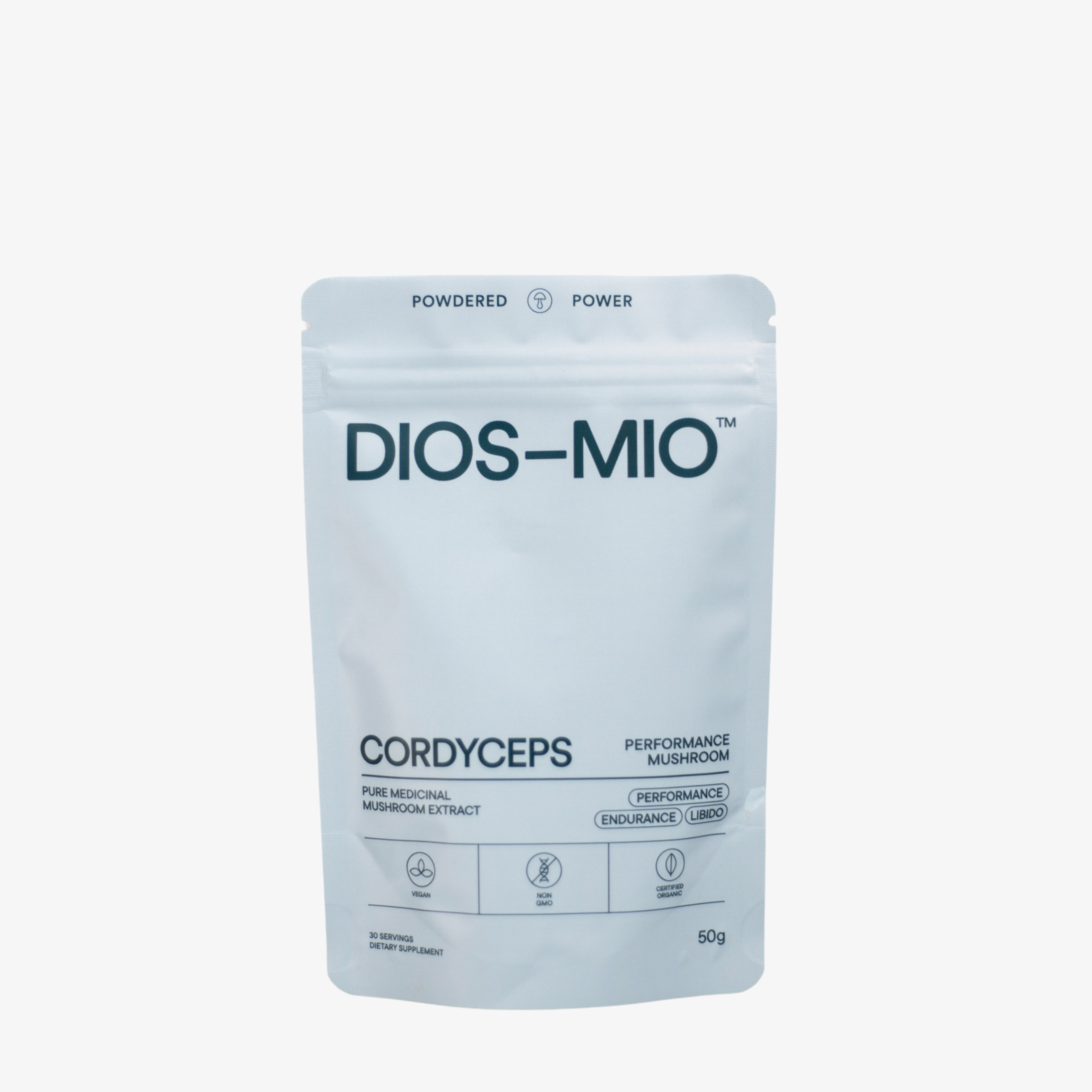Caffeine gives us a lift, making us more efficient and faster. But is that really what we need? And what if our dependency is creating more problems than they're solving?

In a world where 'but first coffee' is our societal modus operandi, and energy drinks and cola are consumed like water, it's no surprise that caffeine addiction is something we'd rather not talk about. Any conversation could verge on to levels of existential threat. After all, its invisible yet pervasive power is what fuelled our modern world. Can you just imagine if tomorrow, caffeine disappeared from the world? What kind of chaos would we be thrown into?
~
As Michael Pollan, author of the book How Caffeine Created the Modern World, writes "For most of us, to be caffeinated to one degree or another has simply become baseline human consciousness."
If you consider the idea that we've been waking up, and ingesting caffeine throughout the day since we were young, the question of who we are without the drug in our system becomes very interesting and a little scary. We’ve been trapped in this vicious cycle for so long that we can’t remember a time when caffeine wasn’t the fix we used to get back to our baseline.
In this blog, we'll aim to explain how caffeine works, why it has a hold over us, and how we can take steps towards healthier habits.
How caffeine works
Caffeine, when ingested, blocks the neurotransmitter called adenosine. This is an important point.
Adenosine is a compound that functions in a critical part of our sleep-wake cycle. When caffeine blocks these receptors, our body tells us that we're no longer tired, which leads to increased alertness and a kind of artificial energy. It's a strange trick to play on our bodies, gaslighting almost. And our future self is the one who suffers.
Caffeine is like going into debt. You get that energy now, but you always pay for it later.
The more caffeine we ingest throughout the day, the more we'll block our adenosine receptors and the longer we'll delay our sleep-wake cycle. With the half-life of caffeine lasting about 12 hours in our system, that midday coffee means we may as well sip an espresso as we prepare for bed. It's ultimately the same thing.

Some common signs you might be addicted
Approximately 90% of humans ingest caffeine regularly, making it the most widely used psychoactive drug in the world. We are all addicts.
"to be caffeinated is to be at baseline human consciousness"
Daily excessive caffeine intake is about 400mg (around three flat whites) and we know our body can build a tolerance pretty easily, meaning over time, the morning cup becomes two. Maybe there's an added afternoon coffee in the mix. You can see how easily it sneaks up.
The Diagnostic and Statistical Manual of Mental Disorders recognises caffeine withdrawal as a condition. Some people might argue that they "need" their morning coffee to function, but we have to acknowledge that is the language of addiction.
Here are some common signs:
- You can't start work until you have had a coffee
- It's part of your daily routine or reward system for work breaks
- You experience cravings without it
- The first sip is like heaven
Remember, caffeine addiction isn't merely about the quantity consumed, but also about the dependency. If you find it challenging to go a day without caffeine and experience withdrawal symptoms like irritability, fatigue, and headaches, you're probably like most people and may be dealing with an addiction.
The impact on health and lifestyle
Caffeine addiction can impact both health and lifestyle. Chronic high caffeine intake over a long period can lead to conditions like osteoporosis, infertility, and heart disease. In the short term it's, increased cortisol levels (stress), anxiety, gastrointestinal problems, and even mood disorders like depression.
Perhaps the main and most invisible symptom is sleep quality. For most of us, waking up tired is fixed with caffeine but what we don't realise is the reason we're tired could be because we were still caffeinated as we were trying to sleep the night before. Enter the 'tired to wired' cycle.
~
Dr. Matthew Walker, a sleep researcher, points to a correlation; “if you plot the rise in coffee shops over the past few decades, then plot the rise in sleep deprivation on that same chart, the lines are very similar.” He thinks there is very little coincidence that our society is chronically over-caffeinated and under-slept.

When caffeine is in our system as we're going to bed, (and it almost always is if you're an average consumer), it becomes difficult to enter our circadian-regulated rapid eye movement (REM) sleep, a critical determinant of sleep quality. This is because caffeine is known to stimulate the central nervous system and increase our heart rate.
We need to be lowering our heart rate as we drift off so it's extra challenging and a lot to ask of the body to just chill after you've been fuelling it with a stimulant drug all day.
REM is a state of deep, restorative sleep. We need that restorative sleep to...restore.
A common dependency cycle that develops:
poor sleep, wake up tired > overcome by caffeine stimulation > caffeine crash and problems concentrating > overcome by more caffeine > poor sleep...
~
Caffeine addiction is not just physical; it has deeply engrained psychological aspects too.
The sneaky secret is caffeine releases dopamine too, a chemical associated with feelings of pleasure and reward. If you associate positive feelings with something, it's extremely challenging to overcome.
You may have a coffee break ritual where you'll complete a task at work and reward yourself with a coffee. Hundreds of millions of people probably do the same every day. The reward for your hard work and efforts is rewarded with a cup of coffee and subsequent release of dopamine. A positive loop is enforced.
So to recap:
It tastes great, energises us (albeit artificially), and releases dopamine. Good.
It contributes to inhibited REM restorative sleep which increases the risk of brain fog and other health problems. Bad.
Overcoming the addiction
Overcoming caffeine addiction requires a holistic approach and a strong commitment. The first step is acknowledging the issue and wanting to make a change. Once you've made this decision, have a plan of action and take smaller steps.
REPLACING RITUAL
It's important to consider the rituals involved. For example, drinking a morning coffee with breakfast or having an energy drink during a work break, can become deeply ingrained in your daily routine. This habitual pattern can make overcoming caffeine addiction as much a mental challenge as a physical one.
This is where decaffeinated coffee (it still tastes great) or herbal tea can substitute. If you need to start smaller, use a smaller mug and gradually try to get down to espresso cup size.
REDUCING INTAKE
Gradually reducing your caffeine intake is generally more effective and manageable than straight out 'cold turkey.' This method minimises withdrawal symptoms and makes the transition easier.
There are a lot of decent coffee companies producing decaffeinated beans these days and all cafes should stock decaf. If you're met with an eye-roll from the barista, know that you're the enlightened drug addict who is making a change for the better.
Alternatively, you could substitute with our Super-Coffee, a low-caffeine, natural energy source made from functional mushrooms and organic cacao. Each serving contains 15mg of caffeine compared with 110mg of a flat white. It also costs five times less per serve.

MINDFULNESS
Mindfulness and cognitive-behavioural therapy (CBT) can help combat the psychological aspects of addiction. These techniques can help you understand your triggers and find healthier alternatives. Ask yourself what could be a healthier 'reward' when completing a task.

Options could include:
- a herbal tea (caffeine-free)
- a piece of fruit (for natural energy)
- a walk around the block to increase the heart rate
- our Super-Coffee (low caffeine, natural energy from functional mushrooms)
- a short meditation session (click here for steps) where you acknowledge your cravings and reduce impulse reactions.
EXERCISE
Exercise is a great way to energise yourself and naturally stimulate your body. A short session with increased heart rate (a few minutes on a treadmill or a run around the block) provides a shot of oxygen to the brain and releases endorphins. Without a doubt, a healthier chemical to get hooked on.

COFFEE ALTERNATIVES
Herbal teas, such as chamomile and peppermint, are caffeine-free and can be a soothing substitute. Other alternatives include chicory coffee (no caffeine), and golden milk (turmeric mixed in warm milk).
Many people enjoy the taste and ritual of coffee, so finding an alternative that offers a similar experience can make the transition easier. Experiment with different options and find what works for you.
We crafted our solution to the caffeine problem and endearingly named it 'Super-Coffee'.

It's a blend of organic, antioxidant-rich ceremonial-grade cacao, functional mushrooms, and spices.
The caffeine content is low (15mg per serve), we chose a natural, healthier energy derived from cacao and Cordyceps mushrooms (which means sustained energy without a crash), Lion's Mane for focus and cognitive function, and Chaga for immune support. It also holds a delicious flavour depth.

Consider replacing your second cup with "Super-Coffee". Purchase here.

























